Our Couples Treatment program is designed to help partners navigate recovery together, fostering a supportive and healing environment. We address the unique challenges that couples face in addiction recovery, providing therapy and tools to build healthy communication, mutual support, and a stronger relationship.
Today, more couples than ever are facing the challenges of addiction together. Studies show that couples who use drugs or alcohol together have higher rates of dependency, with one partner’s substance use often increasing the likelihood that the other will use as well.
In fact, nearly 40% of couples where one partner has a substance use disorder also experience similar struggles in the other partner. This dynamic, while complex, can make recovery more difficult as each partner’s addiction and behaviors reinforce the other’s.
Couples treatment offers a tailored approach to address the unique challenges that arise when both partners are on a journey to sobriety. By working through addiction together, couples can support each other in building healthier habits, improving communication, and setting boundaries that support long-term recovery. With a blend of individual and joint therapies, couples treatment not only addresses the root causes of addiction but also strengthens the relationship, allowing both partners to heal and grow alongside each other in recovery.
By entering treatment as a couple, both partners can address their individual challenges while learning healthier ways to support each other’s recovery. Joint healing encourages open communication, rebuilds trust, and helps both partners develop coping skills to prevent relapse. Additionally, healing together strengthens the foundation of the relationship, allowing both partners to move forward with a shared commitment to sobriety, which research shows significantly improves long-term recovery outcomes for both individuals and the relationship itself.
Call for Help Today:

If you’re currently struggling with drugs or alcohol, that addiction is life threatening. Drug and alcohol detox gets you clean or sober, using either a social approach where you quit and go through withdrawal, or a medication assisted treatment program.
Asana Recovery uses both options, which will be recommended based on the amount of substance you’re using, which substances you’re using, and your mental and physical health.
Detox normally involves staying at our clinic where you can be monitored and given the medical attention to move through withdrawal safely.
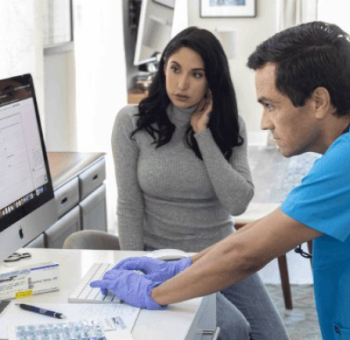
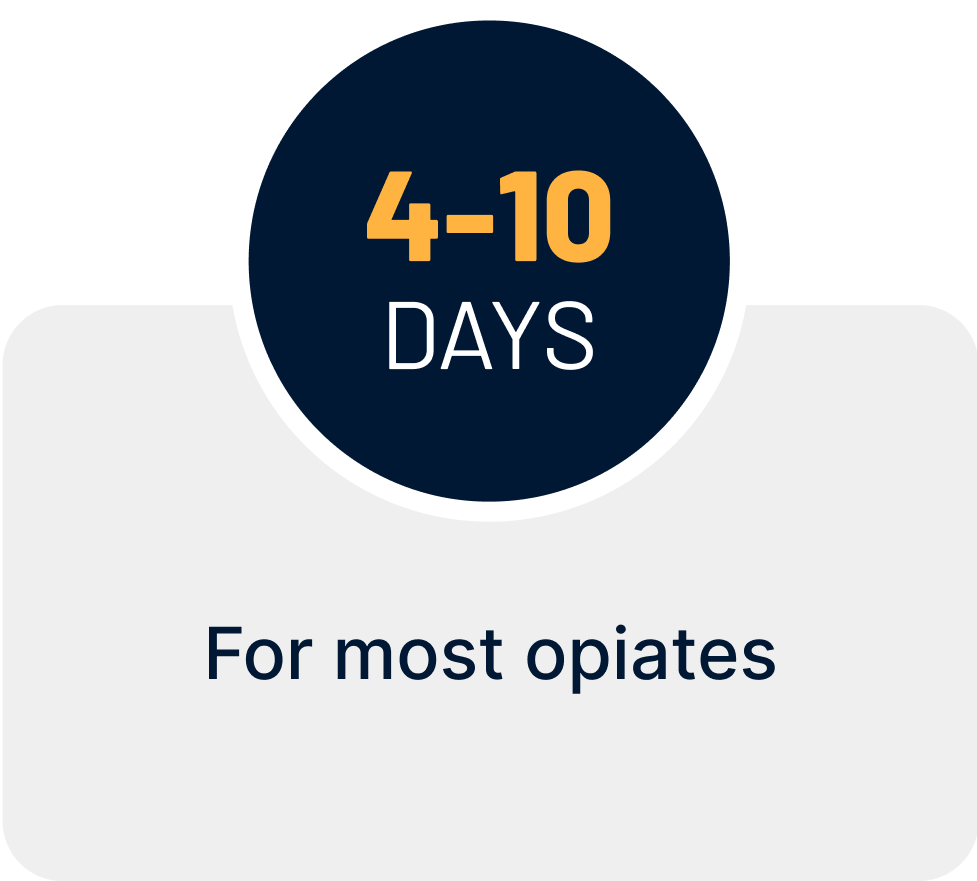
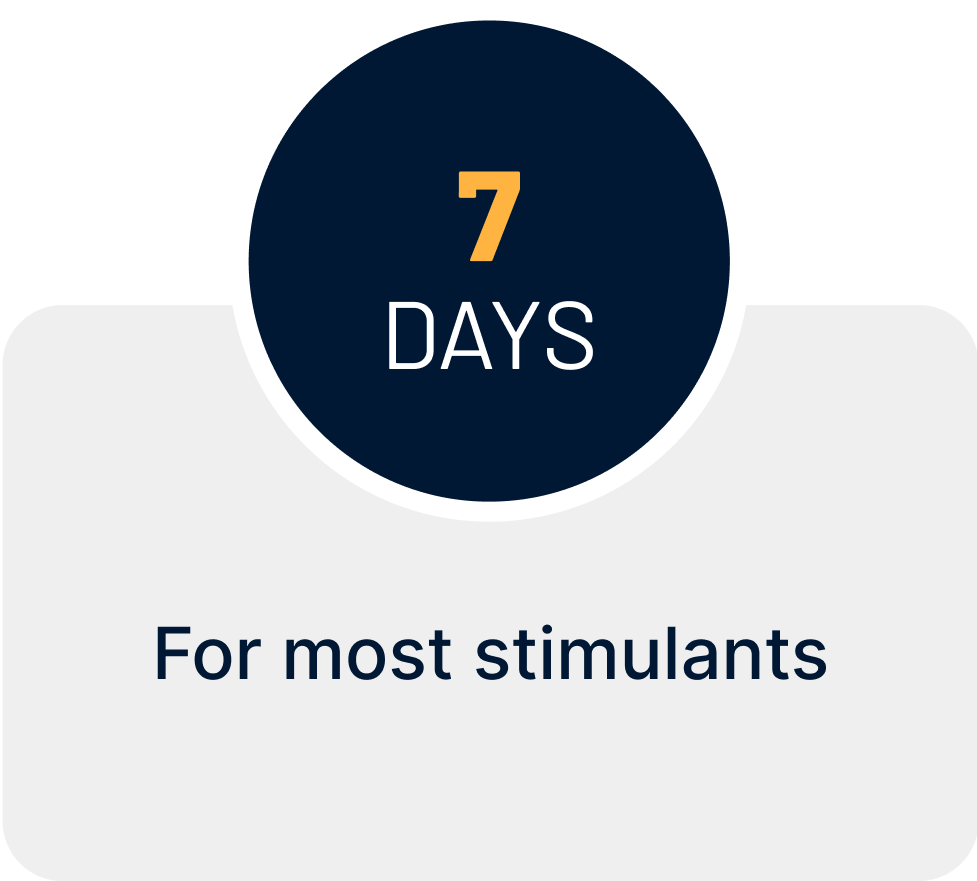
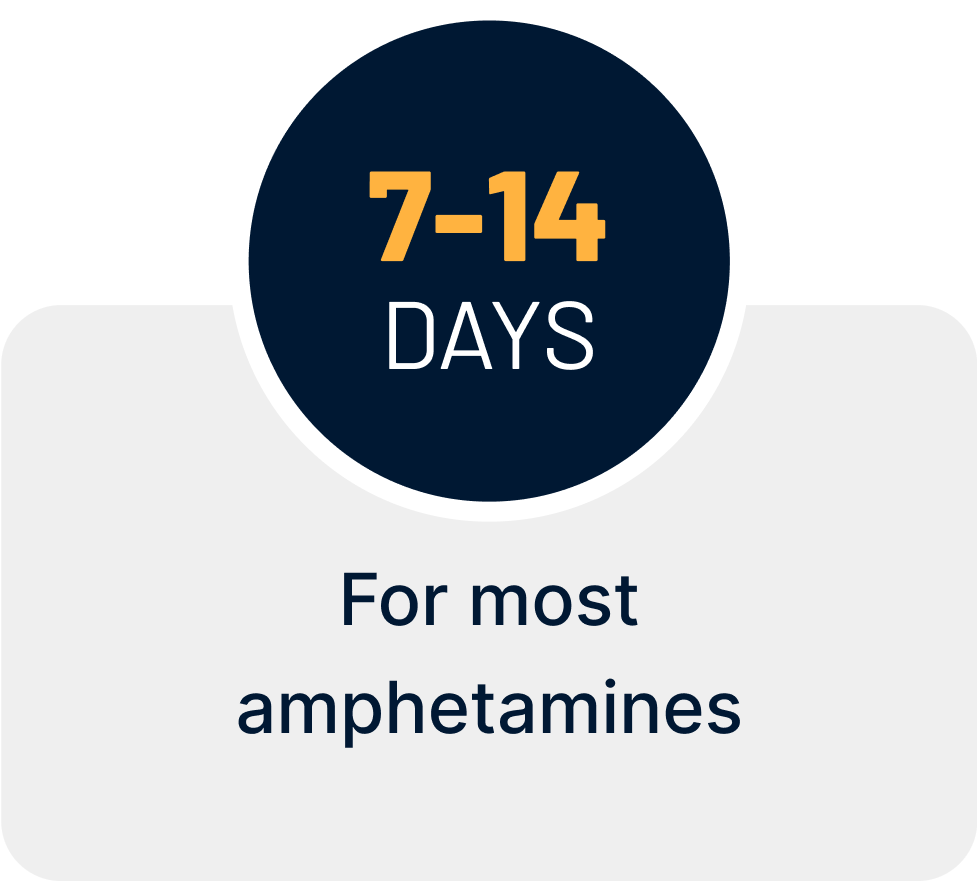


In addition, if you’re addicted to a benzodiazepine, you may be asked to go onto a tapering schedule. This can significantly extend the detox period, because you will sometimes spend several weeks on detox instead of the standard 7-14 days.
Asana Recovery provides intimate residential treatment in Orange County, California, with no more than 6 clients per facility to ensure highly personalized care. Our comprehensive treatment approach combines evidence-based therapies with holistic healing methods to address addiction and co-occurring mental health disorders
Our program utilizes multiple therapeutic modalities including Cognitive Behavioral Therapy (CBT), Dialectical Behavior Therapy (DBT), group therapy, and family therapy sessions. These core treatments are enhanced by holistic therapies such as art therapy, yoga, mindfulness practices, and recreational activities. Their biological, psychological, and social (BPS) approach creates an integrated healing environment where clients can develop essential recovery skills while receiving individualized attention from the clinical team.

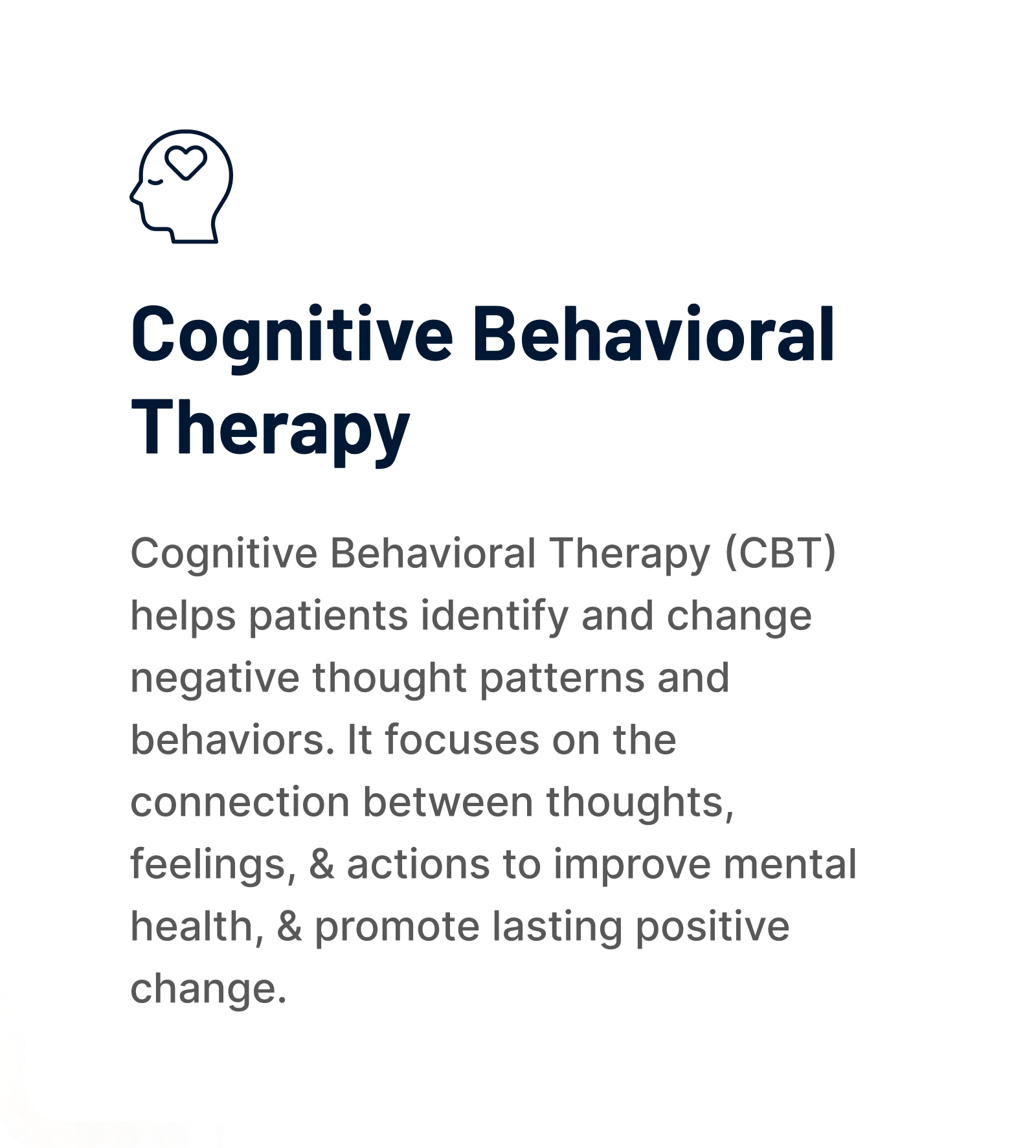

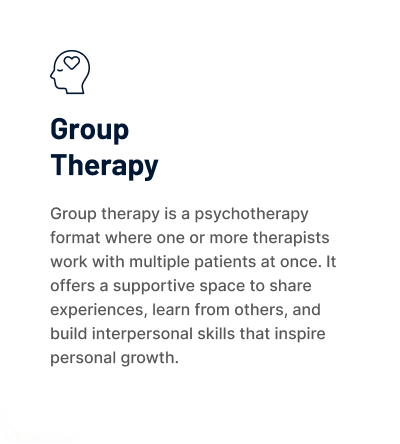
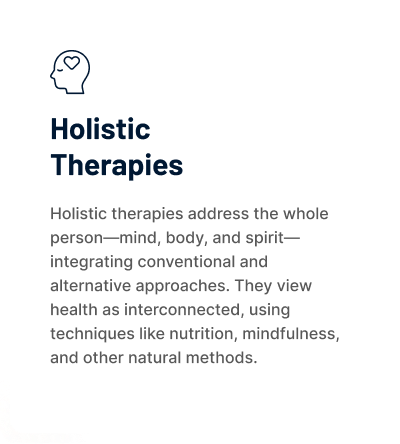

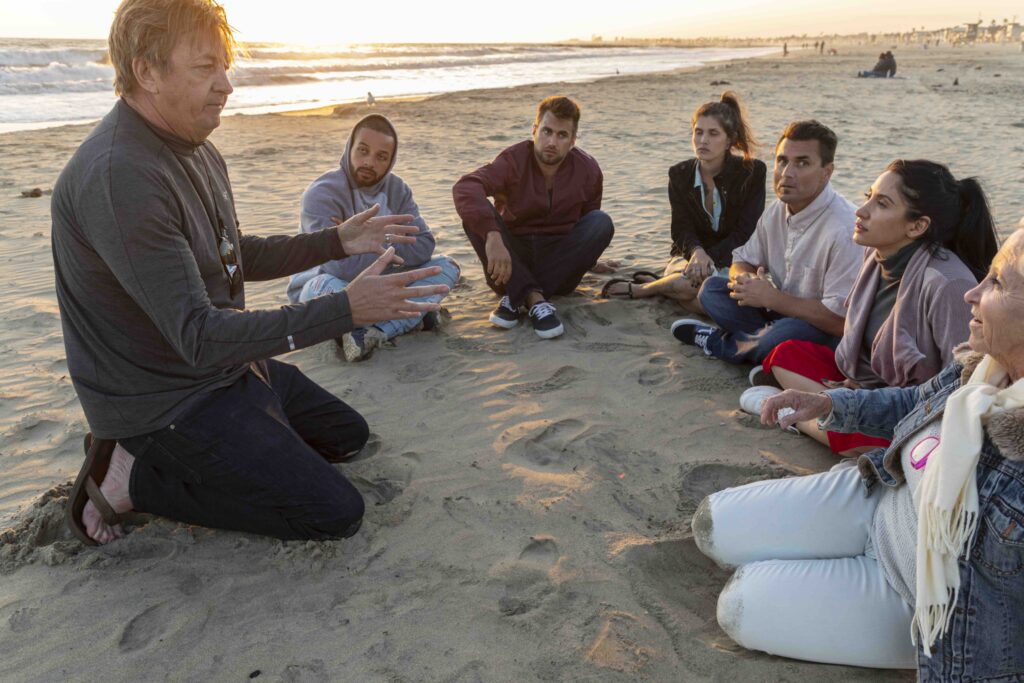
Research shows that approximately 50% of individuals with substance use disorders have co-occurring mental health conditions. This high rate of comorbidity requires an integrated treatment approach, as both conditions significantly impact each other. When mental health issues go untreated, substance abuse typically worsens, and conversely, substance use can exacerbate mental health problems.
Many individuals develop substance use problems while attempting to self-medicate symptoms of depression, anxiety, or trauma. Studies indicate that only 8.3% of adults with co-occurring disorders receive integrated treatment for both conditions
The most effective approach is concurrent treatment of both mental health and addiction by the same clinical team, which leads to better outcomes, reduced relapse rates, and improved long-term recovery success.

Research shows that addressing physical health and nutrition during substance use disorder treatment is crucial for recovery success. Poor nutrition and physical health issues can lead to treatment dropout and increased relapse risk, while improvements in physical health enhance motivation and quality of life during addiction treatment.
Substance use typically leads to nutrient deficiencies, damaged organs, decreased immunity, and poor eating patterns. These issues can threaten both physical and mental health, impacting vital organs and the nervous system. Additionally, different substances affect nutrition and metabolism differently – opioids impact gastrointestinal function, stimulants reduce appetite, and alcohol can cause severe nutritional deficiencies.
Treatment at Asana Recovery includes a nutritional assessment, balanced meals, and physical health monitoring to support healing and maintain long-term recovery.

Research shows that addressing spiritual health during substance use disorder treatment is a significant factor in recovery success. Studies indicate that spirituality can be approached through various pathways, including traditional 12-step programs like AA, secular programs like SMART Recovery, or holistic approaches that integrate mind, body, and spirit connections.
While AA emphasizes spiritual awakening as a key recovery mechanism, SMART Recovery offers a science-based alternative that allows individuals to incorporate their own spiritual beliefs as they see fit. Holistic approaches acknowledge that spiritual wellness, alongside physical and mental health, plays a vital role in comprehensive healing
Studies demonstrate that individuals who engage in spiritual practices during treatment show better outcomes, regardless of their chosen spiritual path. The key is providing options that respect individual beliefs.
A mental health disorder will almost always mean that you need long-term care and treatment to stay in recovery. At Asana Recovery, we understand that you should always have someone to talk to in case things go wrong. Mental health disorders will always mean that you will have bad days, you are more vulnerable to relapse, and you need ongoing mental healthcare and counseling. Asana Recovery can help you on this journey, offering support, ongoing counseling, and help finding local support groups.
Every aspect of dual diagnosis treatment has to be personalized to treat your specific mental health problems, as they impact you when you move into treatment and as you progress through treatment. At Asana Recovery, we take that seriously.


Partial Hospitalization Program (PHP) is an intensive outpatient treatment option that bridges the gap between inpatient care and traditional outpatient services. The program typically operates 5-7 days per week, with sessions lasting 4-6 hours daily, providing a minimum of 20 hours of weekly treatment.
During PHP, patients receive comprehensive care including individual therapy, group therapy, medication management, and psychiatric services while returning home each evening. This allows them to maintain daily responsibilities while receiving structured treatment. The program is ideal for individuals who have completed inpatient care, need more support than traditional outpatient treatment, or have a stable living environment but require intensive therapeutic intervention.
Intensive Outpatient Program (IOP) is a structured treatment option that bridges the gap between inpatient care and traditional outpatient services. The program typically provides 9-19 hours of weekly treatment while allowing clients to maintain their daily responsibilities like work, school, or family obligations.
IOP offers comprehensive care through various therapeutic interventions, including individual counseling, group therapy, family therapy, and psychoeducation sessions. Treatment focuses on substance use disorders, mental health conditions, or co-occurring disorders that don’t require 24-hour supervision or medical detoxification..

Start your recovery journey with us at Asana Recovery, where we prioritize your well-being and provide a welcoming environment for you to heal.
Begin your healing journey today. Fill out the confidential form to find out if your insurance covers you for treatment.
Couples rehab is a specialized form of addiction treatment designed to help romantic partners recover from substance abuse together. This approach recognizes that addiction often impacts not just the individual but also the dynamics of a relationship. By addressing both personal struggles and relational challenges, couples rehab provides a holistic pathway to recovery.
In couples rehab, both partners engage in individualized treatment plans tailored to their specific needs while simultaneously working on the relationship dynamics that may have contributed to or been affected by their addictions. This dual focus ensures that each individual receives the care they need while fostering a supportive environment for mutual growth and healing. Programs often include therapies such as Behavioral Couples Therapy (BCT), Cognitive Behavioral Therapy (CBT), and Emotionally Focused Therapy (EFT), which aim to improve communication, address codependency, and strengthen emotional bonds.
The benefits of couples rehab are multifaceted. First, it provides mutual support and accountability, creating a shared commitment to sobriety. Partners learn to understand each other’s triggers and vulnerabilities, which helps prevent relapse and builds resilience in their relationship. Moreover, couples rehab strengthens the partnership by teaching healthier communication skills and conflict resolution strategies. By working through challenges together, couples can rebuild trust and foster a deeper emotional connection.
Another significant advantage is the establishment of shared recovery goals alongside individual aspirations. This collaborative approach reinforces both personal growth and the health of the relationship. For many couples, attending rehab together can be transformative, turning a potentially isolating experience into an opportunity for joint healing and renewed connection.
Couples rehab is particularly effective for those whose substance abuse patterns are interconnected or whose relationships have been strained by addiction. Whether through inpatient programs offering intensive support or outpatient settings allowing for flexibility, couples rehab provides a structured environment where both partners can heal together. It is not just about overcoming addiction but also about rebuilding a healthier, more supportive relationship that can withstand future challenges.
For couples willing to commit to this journey, couples rehab offers a unique and powerful path to recovery—one that emphasizes both individual well-being and the strength of their partnership
Choosing couples treatment at Asana Recovery in California offers a unique and transformative approach to overcoming addiction. This specialized program is designed for partners who are struggling with substance use disorders, providing an opportunity to heal both individually and as a couple. The essence of Asana Recovery’s couples rehab lies in its personalized care, which recognizes that every couple’s journey is distinct. By tailoring treatment plans to the specific needs of each partner, Asana ensures that both individuals receive the support necessary for effective recovery.
At the heart of Asana Recovery’s program is a team of expert professionals dedicated to guiding couples through their rehabilitation journey. This team comprises experienced therapists and medical staff who understand the complexities of addiction and its impact on relationships. Their expertise allows them to implement evidence-based therapies that address not only the addiction itself but also the underlying issues that may contribute to substance use. This dual focus fosters a deeper understanding between partners, enabling them to support each other more effectively throughout the recovery process.
Moreover, Asana Recovery provides a supportive environment that encourages open communication and collaboration. Couples engage in both individual and group therapy sessions, where they can explore their experiences and feelings in a safe space. This environment is crucial for building trust and accountability, as partners learn to communicate their needs and challenges while also developing strategies to confront their addictions together. The shared commitment to sobriety strengthens their bond, equipping them with essential tools for navigating future challenges.
Completing the couples drug rehab program at Asana Recovery not only leads to sobriety but also fosters healthier relationships. Couples emerge with improved communication skills, greater patience, and a deeper emotional connection. These skills are vital for sustaining long-term recovery and ensuring that both partners can thrive in their relationship beyond treatment.
In summary, couples treatment at Asana Recovery stands out due to its personalized care, expert team, and supportive environment. By choosing this path, couples can embark on a transformative journey toward recovery that not only addresses addiction but also strengthens their relationship, paving the way for a healthier future together.
Recognizing when a relationship requires intervention can be difficult, especially when addiction is involved. Couples rehab is a crucial step for partners struggling with substance abuse, as it addresses both individual and shared challenges. Here are some key signs that you and your partner may need couples rehab.
Codependency is often a significant indicator that couples rehab might be necessary. In such dynamics, one partner may excessively focus on the other’s needs, often at the expense of their own well-being. This unhealthy reliance can lead to feelings of anxiety, depression, and a loss of identity. If you find yourself constantly prioritizing your partner’s desires over your own or feeling incomplete without them, it may be time to seek help. Codependency can also manifest in enabling behaviors, where one partner shields the other from the consequences of their addiction, further complicating the relationship.
Another critical sign is the presence of shared addiction triggers. If both partners are struggling with substance abuse, they may inadvertently create an environment that fosters addiction. For example, engaging in activities that encourage drinking or drug use together can reinforce unhealthy patterns. If you notice that your relationship revolves around substances or that you both find it challenging to resist using in each other’s presence, this could indicate a need for couples rehab.
Relationship strain is another telltale sign that intervention may be required. Frequent arguments, emotional disconnection, and a breakdown in communication can signal deeper issues at play. When conversations devolve into blame and resentment rather than constructive dialogue, it becomes clear that professional help is needed. If you feel trapped in a cycle of conflict or if intimacy has significantly diminished, these are strong indicators that couples rehab could provide the support necessary to rebuild your relationship.
In conclusion, recognizing these signs—codependency, shared addiction triggers, and relationship strain—is essential for couples facing the challenges of addiction. Seeking couples addiction treatment is not a sign of weakness; rather, it demonstrates a commitment to healing and growth within the partnership. By addressing these issues together in a structured environment, couples can learn effective communication skills, develop healthier coping mechanisms, and ultimately work towards a more fulfilling relationship.
Couples rehab is an innovative approach to addiction treatment that recognizes the unique challenges faced by partners who struggle with substance abuse. This method emphasizes not only individual recovery but also the healing of the relationship itself. The process typically involves several key stages: detox, therapy, dual diagnosis treatment, and relationship building.
Detoxification is often the first step in the couples rehab journey. This phase can be particularly difficult as it involves the body adjusting to the absence of addictive substances. When couples detox together, they can provide mutual support, which can ease the discomfort associated with withdrawal symptoms. Typically lasting from three to seven days, detox is tailored to each individual’s specific needs, allowing for a personalized approach that acknowledges the different substances and levels of addiction involved.
Following detox, therapy becomes a central component of recovery. Couples participate in both individual and joint therapy sessions. Individual therapy focuses on personal issues related to addiction, while couples therapy addresses relationship dynamics and communication challenges exacerbated by substance abuse. Techniques such as cognitive behavioral therapy (CBT) are commonly employed to help partners understand their behaviors and develop healthier coping strategies. This therapeutic framework not only aids in recovery but also strengthens the couple’s bond by fostering open communication and trust.
A crucial aspect of couples rehab is dual diagnosis treatment, which addresses co-occurring mental health disorders alongside substance use issues. Many individuals struggling with addiction also face mental health challenges such as anxiety or depression. By treating both conditions simultaneously, couples can achieve a more comprehensive recovery that acknowledges the interplay between their mental health and substance abuse.
Building a healthy relationship is another vital focus of couples rehab. As partners navigate their recovery journey together, they learn to establish mutual goals and support each other’s sobriety. This shared experience can significantly enhance their motivation to remain sober, as both individuals are accountable to one another. Through group therapy sessions involving other couples, they can share experiences and strategies for overcoming challenges, further reinforcing their commitment to recovery.
In addition to these therapeutic components, couples rehab often includes aftercare planning to ensure ongoing support post-treatment. This might involve continued therapy sessions, participation in support groups, and strategies for maintaining sobriety together.
Overall, couples rehab offers a holistic approach that not only targets addiction but also fosters relationship healing and growth. By working through their struggles together, couples can emerge from rehab with a stronger bond and a renewed commitment to each other’s well-being.
Couples rehab is an innovative approach to addiction treatment that recognizes the profound impact of shared experiences in recovery. This method not only addresses individual substance use issues but also focuses on the dynamics of the relationship itself, fostering mutual support and improving relationship dynamics. As couples navigate the challenges of addiction together, they embark on a transformative journey that can significantly enhance their bond and commitment to sobriety.
One of the primary benefits of couples rehab is the shared recovery journey. When partners enter rehab together, they create a unique environment where both individuals can openly discuss their struggles and triumphs. This shared experience fosters a sense of solidarity, as each partner understands the other’s challenges on a personal level. The emotional support gained from this mutual understanding can be a powerful motivator, encouraging both individuals to remain committed to their recovery goals. By addressing addiction as a couple, partners can learn from each other’s experiences and develop coping strategies that are tailored to their specific relationship dynamics.
Mutual support is another crucial aspect of couples rehab. The process allows partners to offer emotional and moral backing during difficult times, which can be instrumental in maintaining motivation throughout recovery. This support system not only helps in overcoming individual struggles but also strengthens the relationship itself. Couples often find that as they work through their issues together, they develop healthier communication patterns and conflict resolution skills. These improvements lead to a more resilient partnership, equipped to handle future challenges that may arise.
Moreover, couples rehab promotes improved relationship dynamics by addressing underlying issues that may have contributed to substance use in the first place. Many couples face co-dependency or enabling behaviors that can perpetuate addiction cycles. By participating in therapy together, partners can identify these patterns and learn healthier ways to interact with one another. This process encourages personal growth while simultaneously nurturing the relationship, allowing both individuals to evolve independently yet cohesively.
In addition to these relational benefits, couples rehab also emphasizes the importance of setting unified goals for recovery. When both partners are committed to sobriety, they can establish shared objectives that reinforce their dedication to each other and their journey toward health. This collaborative approach not only enhances accountability but also creates a sense of purpose within the relationship. Couples who work together towards common goals often find themselves more motivated and engaged in their recovery process.
Ultimately, couples rehab serves as a catalyst for both individual healing and relationship recovery. The shared experiences foster a supportive environment where partners can thrive together, turning what could be an isolating experience into one filled with connection and understanding. As couples emerge from rehab, they often do so not only as renewed individuals but also as stronger partners ready to face life’s challenges together.
In conclusion, the benefits of couples rehab extend far beyond mere addiction treatment; they encompass a holistic approach to healing that strengthens relationships while promoting individual growth. By embarking on this journey together, couples can transform their struggles into shared victories, paving the way for a healthier future both individually and as a united front against addiction.
Dual diagnosis treatment, particularly in the context of couples rehab, represents a progressive approach to addressing the intertwined challenges of mental health and addiction. This form of rehabilitation acknowledges that both partners in a relationship may be struggling with substance use disorders alongside mental health issues, creating a complex dynamic that necessitates a specialized treatment strategy.
In couples rehab, the focus is on treating both individuals simultaneously, which has been shown to enhance recovery outcomes. By engaging both partners in the therapeutic process, couples can address not only their individual struggles with addiction but also the relational dynamics that may contribute to their substance use. This dual approach fosters a supportive environment where both partners can learn healthier communication and coping strategies, ultimately reducing the risk of relapse and promoting long-term recovery.
The integration of traditional addiction treatment methods—such as detoxification and individual therapy—with couple-focused interventions is a hallmark of effective dual diagnosis treatment. Couples participate in various therapeutic modalities, including behavioral therapy and counseling, aimed at addressing both their psychological challenges and the interpersonal aspects of their relationship. This holistic approach allows couples to confront their addiction issues together, building a stronger bond as they navigate their recovery journey.
Moreover, many couples facing dual addiction also contend with co-occurring mental health disorders such as anxiety or depression. Effective treatment must therefore include strategies that address these mental health concerns concurrently with substance use disorders. Integrated care models are particularly beneficial as they provide comprehensive support tailored to the unique needs of each couple. By treating both conditions in tandem, couples can achieve more favorable health outcomes and foster a deeper understanding of each other’s experiences.
Creating a nurturing environment is essential in couples rehab for dual diagnosis. Treatment facilities often prioritize privacy and comfort, allowing couples to focus on their healing without external distractions. This supportive atmosphere is crucial for fostering open communication and trust, which are vital components of successful recovery.
Ultimately, couples rehab for dual diagnosis offers a powerful pathway to recovery that not only aims for sobriety but also seeks to strengthen relationships. By embarking on this journey together, couples can cultivate resilience and develop healthier patterns that will support them long after they leave the treatment facility. For those grappling with addiction and mental health issues, pursuing couples rehab can be a transformative step toward achieving lasting recovery and renewed connection.
Choosing the right rehabilitation program for couples struggling with addiction can be a daunting task. Two primary options are available: inpatient and outpatient rehab. Each has its unique benefits and challenges, making it essential for couples to evaluate their specific needs, circumstances, and relationship dynamics before making a decision.
Inpatient rehab for couples provides a highly structured environment where both partners reside at the treatment facility. This option is particularly beneficial for those facing severe addiction or co-occurring mental health issues. With 24/7 supervision and support, couples can focus entirely on their recovery without the distractions of daily life. The immersive nature of inpatient treatment allows couples to detox in a controlled setting, minimizing exposure to triggers that could lead to relapse. However, this approach can be more expensive due to the costs associated with room and board.
On the other hand, outpatient couples rehab offers a more flexible approach. Couples can continue living at home while attending scheduled therapy sessions. This format allows individuals to maintain their daily responsibilities, such as work and family commitments, making it a more affordable option for many. Outpatient programs encourage clients to develop coping strategies in real-life situations, which can be beneficial for long-term recovery. However, this flexibility comes with challenges; couples must navigate daily triggers and temptations without the constant support found in inpatient settings.
When considering which program is right for them, couples should assess several factors. The severity of their addiction is crucial; those with more severe dependencies may benefit from the intensive care provided by inpatient programs. Conversely, if both partners have a stable support system and are motivated to change, outpatient rehab may be effective.
Moreover, the dynamics of the couple’s relationship play a significant role in the decision-making process. Attending rehab together can foster shared experiences and mutual accountability but may also present challenges if one partner is less committed to recovery. Couples should consider whether their relationship dynamics might hinder or help their individual treatment processes.
Ultimately, both inpatient and outpatient rehab programs aim to address addiction while improving relationship health. Couples should seek facilities that offer comprehensive services tailored to their unique needs. This includes individual therapy focused on personal growth alongside joint therapy aimed at enhancing communication and rebuilding trust.
As couples embark on this journey toward recovery together, they must prioritize open communication about their expectations and concerns regarding treatment. By doing so, they can choose a program that aligns with their goals for both individual sobriety and relationship improvement. Whether seeking “inpatient drug rehab for couples” or “outpatient couples rehab,” careful consideration will lead to a more successful recovery experience that strengthens their bond while overcoming addiction together.
Couples treatment for addiction in California stands out due to its unique blend of location-based benefits, including an inviting climate, state-of-the-art facilities, and a wealth of local recovery resources. These factors create an environment conducive to healing and growth for couples facing the challenges of substance abuse.
The climate in California is often cited as a significant advantage for those seeking recovery. The warm, sunny weather can enhance mood and provide opportunities for outdoor activities, which are essential for mental and physical well-being. This favorable climate allows couples to engage in therapeutic activities outside, promoting a sense of freedom and relaxation that can be crucial during the recovery process. The natural beauty of the surroundings further contributes to a peaceful setting that encourages reflection and connection.
California is home to numerous treatment facilities that offer specialized programs tailored for couples. These centers are equipped with experienced professionals who understand the complexities of addiction within relationships. They provide comprehensive treatment options, including behavioral couples therapy, which focuses on improving communication and addressing unhealthy patterns that may contribute to substance abuse. The availability of both inpatient and outpatient programs ensures that couples can find a level of care that suits their individual needs while remaining together throughout their recovery journey.
Moreover, Southern California boasts a vibrant community dedicated to recovery. Numerous local resources, such as support groups and aftercare programs, are readily accessible to couples who have completed their treatment. This supportive network is vital for maintaining sobriety and fostering healthy relationships post-rehab. Couples can participate in community events or connect with others who share similar experiences, reinforcing their commitment to recovery together.
The emphasis on holistic approaches in California’s rehab facilities is another distinguishing feature. Many centers incorporate wellness practices such as yoga, meditation, and nutritional counseling into their programs. These holistic treatments help couples address not only their addiction but also the underlying emotional and psychological issues that may have contributed to their substance use. By focusing on the whole person rather than just the addiction, couples can develop healthier coping mechanisms and strengthen their bond.
In summary, couples treatment in California offers a unique combination of favorable climate conditions, specialized facilities, and robust local support systems. These elements create an ideal environment for couples seeking recovery from addiction together. By participating in tailored programs that address both individual needs and relationship dynamics, couples can embark on a transformative journey toward healing and lasting sobriety
Couples treatment in California offers a unique and transformative opportunity for partners seeking recovery from addiction. The state’s diverse resources, scenic environments, and progressive healthcare approach make it a top destination for couples rehab.
California’s reputation as a premier location for couples treatment is largely attributed to its comprehensive range of addiction recovery programs. From inpatient facilities to outpatient services, couples can find tailored treatment options that address their specific needs. Many centers specialize in dual diagnosis, which is crucial for those dealing with both substance abuse and underlying mental health issues. This integrated approach not only helps in managing addiction but also fosters healthier relationship dynamics by addressing co-dependency and toxic behaviors.
The scenic locations throughout California play a significant role in the healing process. The state’s breathtaking beaches, majestic mountains, and temperate climate provide an ideal backdrop for recovery. Outdoor activities, such as hiking or surfing, are often incorporated into therapy programs, allowing couples to bond in a serene environment while engaging in physical wellness. This connection to nature can enhance emotional healing and provide a refreshing perspective on life outside of addiction.
Moreover, California’s progressive healthcare policies support addiction recovery through various initiatives. Recent legislation has introduced programs like the CARE Court, aimed at providing mental health and substance use disorder services to those in need. Such programs ensure that individuals receive the necessary support while navigating the complexities of recovery. Additionally, laws regulating treatment facilities help maintain high standards of care, ensuring that couples receive effective and compassionate treatment.
In summary, couples treatment in California stands out due to its comprehensive programs, stunning recovery environments, and supportive legislative framework. By choosing this state for rehab, couples not only embark on a journey toward sobriety but also strengthen their relationships in a nurturing and empowering setting. The combination of professional guidance and the beauty of California creates a unique pathway for healing that can lead to lasting change and renewed hope for the future.

Couples rehab is a specialized form of addiction treatment designed to help romantic partners recover from substance abuse together. This approach recognizes that addiction often impacts not just the individual but also the dynamics of a relationship. By addressing both personal struggles and relational challenges, couples rehab provides a holistic pathway to recovery.
In couples rehab, both partners engage in individualized treatment plans tailored to their specific needs while simultaneously working on the relationship dynamics that may have contributed to or been affected by their addictions. This dual focus ensures that each individual receives the care they need while fostering a supportive environment for mutual growth and healing. Programs often include therapies such as Behavioral Couples Therapy (BCT), Cognitive Behavioral Therapy (CBT), and Emotionally Focused Therapy (EFT), which aim to improve communication, address codependency, and strengthen emotional bonds.
The benefits of couples rehab are multifaceted. First, it provides mutual support and accountability, creating a shared commitment to sobriety. Partners learn to understand each other’s triggers and vulnerabilities, which helps prevent relapse and builds resilience in their relationship. Moreover, couples rehab strengthens the partnership by teaching healthier communication skills and conflict resolution strategies. By working through challenges together, couples can rebuild trust and foster a deeper emotional connection.
Another significant advantage is the establishment of shared recovery goals alongside individual aspirations. This collaborative approach reinforces both personal growth and the health of the relationship. For many couples, attending rehab together can be transformative, turning a potentially isolating experience into an opportunity for joint healing and renewed connection.
Couples rehab is particularly effective for those whose substance abuse patterns are interconnected or whose relationships have been strained by addiction. Whether through inpatient programs offering intensive support or outpatient settings allowing for flexibility, couples rehab provides a structured environment where both partners can heal together. It is not just about overcoming addiction but also about rebuilding a healthier, more supportive relationship that can withstand future challenges.
For couples willing to commit to this journey, couples rehab offers a unique and powerful path to recovery—one that emphasizes both individual well-being and the strength of their partnership
Choosing couples treatment at Asana Recovery in California offers a unique and transformative approach to overcoming addiction. This specialized program is designed for partners who are struggling with substance use disorders, providing an opportunity to heal both individually and as a couple. The essence of Asana Recovery’s couples rehab lies in its personalized care, which recognizes that every couple’s journey is distinct. By tailoring treatment plans to the specific needs of each partner, Asana ensures that both individuals receive the support necessary for effective recovery.
At the heart of Asana Recovery’s program is a team of expert professionals dedicated to guiding couples through their rehabilitation journey. This team comprises experienced therapists and medical staff who understand the complexities of addiction and its impact on relationships. Their expertise allows them to implement evidence-based therapies that address not only the addiction itself but also the underlying issues that may contribute to substance use. This dual focus fosters a deeper understanding between partners, enabling them to support each other more effectively throughout the recovery process.
Moreover, Asana Recovery provides a supportive environment that encourages open communication and collaboration. Couples engage in both individual and group therapy sessions, where they can explore their experiences and feelings in a safe space. This environment is crucial for building trust and accountability, as partners learn to communicate their needs and challenges while also developing strategies to confront their addictions together. The shared commitment to sobriety strengthens their bond, equipping them with essential tools for navigating future challenges.
Completing the couples drug rehab program at Asana Recovery not only leads to sobriety but also fosters healthier relationships. Couples emerge with improved communication skills, greater patience, and a deeper emotional connection. These skills are vital for sustaining long-term recovery and ensuring that both partners can thrive in their relationship beyond treatment.
In summary, couples treatment at Asana Recovery stands out due to its personalized care, expert team, and supportive environment. By choosing this path, couples can embark on a transformative journey toward recovery that not only addresses addiction but also strengthens their relationship, paving the way for a healthier future together.
Recognizing when a relationship requires intervention can be difficult, especially when addiction is involved. Couples rehab is a crucial step for partners struggling with substance abuse, as it addresses both individual and shared challenges. Here are some key signs that you and your partner may need couples rehab.
Codependency is often a significant indicator that couples rehab might be necessary. In such dynamics, one partner may excessively focus on the other’s needs, often at the expense of their own well-being. This unhealthy reliance can lead to feelings of anxiety, depression, and a loss of identity. If you find yourself constantly prioritizing your partner’s desires over your own or feeling incomplete without them, it may be time to seek help. Codependency can also manifest in enabling behaviors, where one partner shields the other from the consequences of their addiction, further complicating the relationship.
Another critical sign is the presence of shared addiction triggers. If both partners are struggling with substance abuse, they may inadvertently create an environment that fosters addiction. For example, engaging in activities that encourage drinking or drug use together can reinforce unhealthy patterns. If you notice that your relationship revolves around substances or that you both find it challenging to resist using in each other’s presence, this could indicate a need for couples rehab.
Relationship strain is another telltale sign that intervention may be required. Frequent arguments, emotional disconnection, and a breakdown in communication can signal deeper issues at play. When conversations devolve into blame and resentment rather than constructive dialogue, it becomes clear that professional help is needed. If you feel trapped in a cycle of conflict or if intimacy has significantly diminished, these are strong indicators that couples rehab could provide the support necessary to rebuild your relationship.
In conclusion, recognizing these signs—codependency, shared addiction triggers, and relationship strain—is essential for couples facing the challenges of addiction. Seeking couples addiction treatment is not a sign of weakness; rather, it demonstrates a commitment to healing and growth within the partnership. By addressing these issues together in a structured environment, couples can learn effective communication skills, develop healthier coping mechanisms, and ultimately work towards a more fulfilling relationship.
Couples rehab is an innovative approach to addiction treatment that recognizes the unique challenges faced by partners who struggle with substance abuse. This method emphasizes not only individual recovery but also the healing of the relationship itself. The process typically involves several key stages: detox, therapy, dual diagnosis treatment, and relationship building.
Detoxification is often the first step in the couples rehab journey. This phase can be particularly difficult as it involves the body adjusting to the absence of addictive substances. When couples detox together, they can provide mutual support, which can ease the discomfort associated with withdrawal symptoms. Typically lasting from three to seven days, detox is tailored to each individual’s specific needs, allowing for a personalized approach that acknowledges the different substances and levels of addiction involved.
Following detox, therapy becomes a central component of recovery. Couples participate in both individual and joint therapy sessions. Individual therapy focuses on personal issues related to addiction, while couples therapy addresses relationship dynamics and communication challenges exacerbated by substance abuse. Techniques such as cognitive behavioral therapy (CBT) are commonly employed to help partners understand their behaviors and develop healthier coping strategies. This therapeutic framework not only aids in recovery but also strengthens the couple’s bond by fostering open communication and trust.
A crucial aspect of couples rehab is dual diagnosis treatment, which addresses co-occurring mental health disorders alongside substance use issues. Many individuals struggling with addiction also face mental health challenges such as anxiety or depression. By treating both conditions simultaneously, couples can achieve a more comprehensive recovery that acknowledges the interplay between their mental health and substance abuse.
Building a healthy relationship is another vital focus of couples rehab. As partners navigate their recovery journey together, they learn to establish mutual goals and support each other’s sobriety. This shared experience can significantly enhance their motivation to remain sober, as both individuals are accountable to one another. Through group therapy sessions involving other couples, they can share experiences and strategies for overcoming challenges, further reinforcing their commitment to recovery.
In addition to these therapeutic components, couples rehab often includes aftercare planning to ensure ongoing support post-treatment. This might involve continued therapy sessions, participation in support groups, and strategies for maintaining sobriety together.
Overall, couples rehab offers a holistic approach that not only targets addiction but also fosters relationship healing and growth. By working through their struggles together, couples can emerge from rehab with a stronger bond and a renewed commitment to each other’s well-being.
Couples rehab is an innovative approach to addiction treatment that recognizes the profound impact of shared experiences in recovery. This method not only addresses individual substance use issues but also focuses on the dynamics of the relationship itself, fostering mutual support and improving relationship dynamics. As couples navigate the challenges of addiction together, they embark on a transformative journey that can significantly enhance their bond and commitment to sobriety.
One of the primary benefits of couples rehab is the shared recovery journey. When partners enter rehab together, they create a unique environment where both individuals can openly discuss their struggles and triumphs. This shared experience fosters a sense of solidarity, as each partner understands the other’s challenges on a personal level. The emotional support gained from this mutual understanding can be a powerful motivator, encouraging both individuals to remain committed to their recovery goals. By addressing addiction as a couple, partners can learn from each other’s experiences and develop coping strategies that are tailored to their specific relationship dynamics.
Mutual support is another crucial aspect of couples rehab. The process allows partners to offer emotional and moral backing during difficult times, which can be instrumental in maintaining motivation throughout recovery. This support system not only helps in overcoming individual struggles but also strengthens the relationship itself. Couples often find that as they work through their issues together, they develop healthier communication patterns and conflict resolution skills. These improvements lead to a more resilient partnership, equipped to handle future challenges that may arise.
Moreover, couples rehab promotes improved relationship dynamics by addressing underlying issues that may have contributed to substance use in the first place. Many couples face co-dependency or enabling behaviors that can perpetuate addiction cycles. By participating in therapy together, partners can identify these patterns and learn healthier ways to interact with one another. This process encourages personal growth while simultaneously nurturing the relationship, allowing both individuals to evolve independently yet cohesively.
In addition to these relational benefits, couples rehab also emphasizes the importance of setting unified goals for recovery. When both partners are committed to sobriety, they can establish shared objectives that reinforce their dedication to each other and their journey toward health. This collaborative approach not only enhances accountability but also creates a sense of purpose within the relationship. Couples who work together towards common goals often find themselves more motivated and engaged in their recovery process.
Ultimately, couples rehab serves as a catalyst for both individual healing and relationship recovery. The shared experiences foster a supportive environment where partners can thrive together, turning what could be an isolating experience into one filled with connection and understanding. As couples emerge from rehab, they often do so not only as renewed individuals but also as stronger partners ready to face life’s challenges together.
In conclusion, the benefits of couples rehab extend far beyond mere addiction treatment; they encompass a holistic approach to healing that strengthens relationships while promoting individual growth. By embarking on this journey together, couples can transform their struggles into shared victories, paving the way for a healthier future both individually and as a united front against addiction.
Dual diagnosis treatment, particularly in the context of couples rehab, represents a progressive approach to addressing the intertwined challenges of mental health and addiction. This form of rehabilitation acknowledges that both partners in a relationship may be struggling with substance use disorders alongside mental health issues, creating a complex dynamic that necessitates a specialized treatment strategy.
In couples rehab, the focus is on treating both individuals simultaneously, which has been shown to enhance recovery outcomes. By engaging both partners in the therapeutic process, couples can address not only their individual struggles with addiction but also the relational dynamics that may contribute to their substance use. This dual approach fosters a supportive environment where both partners can learn healthier communication and coping strategies, ultimately reducing the risk of relapse and promoting long-term recovery.
The integration of traditional addiction treatment methods—such as detoxification and individual therapy—with couple-focused interventions is a hallmark of effective dual diagnosis treatment. Couples participate in various therapeutic modalities, including behavioral therapy and counseling, aimed at addressing both their psychological challenges and the interpersonal aspects of their relationship. This holistic approach allows couples to confront their addiction issues together, building a stronger bond as they navigate their recovery journey.
Moreover, many couples facing dual addiction also contend with co-occurring mental health disorders such as anxiety or depression. Effective treatment must therefore include strategies that address these mental health concerns concurrently with substance use disorders. Integrated care models are particularly beneficial as they provide comprehensive support tailored to the unique needs of each couple. By treating both conditions in tandem, couples can achieve more favorable health outcomes and foster a deeper understanding of each other’s experiences.
Creating a nurturing environment is essential in couples rehab for dual diagnosis. Treatment facilities often prioritize privacy and comfort, allowing couples to focus on their healing without external distractions. This supportive atmosphere is crucial for fostering open communication and trust, which are vital components of successful recovery.
Ultimately, couples rehab for dual diagnosis offers a powerful pathway to recovery that not only aims for sobriety but also seeks to strengthen relationships. By embarking on this journey together, couples can cultivate resilience and develop healthier patterns that will support them long after they leave the treatment facility. For those grappling with addiction and mental health issues, pursuing couples rehab can be a transformative step toward achieving lasting recovery and renewed connection.
Choosing the right rehabilitation program for couples struggling with addiction can be a daunting task. Two primary options are available: inpatient and outpatient rehab. Each has its unique benefits and challenges, making it essential for couples to evaluate their specific needs, circumstances, and relationship dynamics before making a decision.
Inpatient rehab for couples provides a highly structured environment where both partners reside at the treatment facility. This option is particularly beneficial for those facing severe addiction or co-occurring mental health issues. With 24/7 supervision and support, couples can focus entirely on their recovery without the distractions of daily life. The immersive nature of inpatient treatment allows couples to detox in a controlled setting, minimizing exposure to triggers that could lead to relapse. However, this approach can be more expensive due to the costs associated with room and board.
On the other hand, outpatient couples rehab offers a more flexible approach. Couples can continue living at home while attending scheduled therapy sessions. This format allows individuals to maintain their daily responsibilities, such as work and family commitments, making it a more affordable option for many. Outpatient programs encourage clients to develop coping strategies in real-life situations, which can be beneficial for long-term recovery. However, this flexibility comes with challenges; couples must navigate daily triggers and temptations without the constant support found in inpatient settings.
When considering which program is right for them, couples should assess several factors. The severity of their addiction is crucial; those with more severe dependencies may benefit from the intensive care provided by inpatient programs. Conversely, if both partners have a stable support system and are motivated to change, outpatient rehab may be effective.
Moreover, the dynamics of the couple’s relationship play a significant role in the decision-making process. Attending rehab together can foster shared experiences and mutual accountability but may also present challenges if one partner is less committed to recovery. Couples should consider whether their relationship dynamics might hinder or help their individual treatment processes.
Ultimately, both inpatient and outpatient rehab programs aim to address addiction while improving relationship health. Couples should seek facilities that offer comprehensive services tailored to their unique needs. This includes individual therapy focused on personal growth alongside joint therapy aimed at enhancing communication and rebuilding trust.
As couples embark on this journey toward recovery together, they must prioritize open communication about their expectations and concerns regarding treatment. By doing so, they can choose a program that aligns with their goals for both individual sobriety and relationship improvement. Whether seeking “inpatient drug rehab for couples” or “outpatient couples rehab,” careful consideration will lead to a more successful recovery experience that strengthens their bond while overcoming addiction together.
Couples treatment for addiction in California stands out due to its unique blend of location-based benefits, including an inviting climate, state-of-the-art facilities, and a wealth of local recovery resources. These factors create an environment conducive to healing and growth for couples facing the challenges of substance abuse.
The climate in California is often cited as a significant advantage for those seeking recovery. The warm, sunny weather can enhance mood and provide opportunities for outdoor activities, which are essential for mental and physical well-being. This favorable climate allows couples to engage in therapeutic activities outside, promoting a sense of freedom and relaxation that can be crucial during the recovery process. The natural beauty of the surroundings further contributes to a peaceful setting that encourages reflection and connection.
California is home to numerous treatment facilities that offer specialized programs tailored for couples. These centers are equipped with experienced professionals who understand the complexities of addiction within relationships. They provide comprehensive treatment options, including behavioral couples therapy, which focuses on improving communication and addressing unhealthy patterns that may contribute to substance abuse. The availability of both inpatient and outpatient programs ensures that couples can find a level of care that suits their individual needs while remaining together throughout their recovery journey.
Moreover, Southern California boasts a vibrant community dedicated to recovery. Numerous local resources, such as support groups and aftercare programs, are readily accessible to couples who have completed their treatment. This supportive network is vital for maintaining sobriety and fostering healthy relationships post-rehab. Couples can participate in community events or connect with others who share similar experiences, reinforcing their commitment to recovery together.
The emphasis on holistic approaches in California’s rehab facilities is another distinguishing feature. Many centers incorporate wellness practices such as yoga, meditation, and nutritional counseling into their programs. These holistic treatments help couples address not only their addiction but also the underlying emotional and psychological issues that may have contributed to their substance use. By focusing on the whole person rather than just the addiction, couples can develop healthier coping mechanisms and strengthen their bond.
In summary, couples treatment in California offers a unique combination of favorable climate conditions, specialized facilities, and robust local support systems. These elements create an ideal environment for couples seeking recovery from addiction together. By participating in tailored programs that address both individual needs and relationship dynamics, couples can embark on a transformative journey toward healing and lasting sobriety
Couples treatment in California offers a unique and transformative opportunity for partners seeking recovery from addiction. The state’s diverse resources, scenic environments, and progressive healthcare approach make it a top destination for couples rehab.
California’s reputation as a premier location for couples treatment is largely attributed to its comprehensive range of addiction recovery programs. From inpatient facilities to outpatient services, couples can find tailored treatment options that address their specific needs. Many centers specialize in dual diagnosis, which is crucial for those dealing with both substance abuse and underlying mental health issues. This integrated approach not only helps in managing addiction but also fosters healthier relationship dynamics by addressing co-dependency and toxic behaviors.
The scenic locations throughout California play a significant role in the healing process. The state’s breathtaking beaches, majestic mountains, and temperate climate provide an ideal backdrop for recovery. Outdoor activities, such as hiking or surfing, are often incorporated into therapy programs, allowing couples to bond in a serene environment while engaging in physical wellness. This connection to nature can enhance emotional healing and provide a refreshing perspective on life outside of addiction.
Moreover, California’s progressive healthcare policies support addiction recovery through various initiatives. Recent legislation has introduced programs like the CARE Court, aimed at providing mental health and substance use disorder services to those in need. Such programs ensure that individuals receive the necessary support while navigating the complexities of recovery. Additionally, laws regulating treatment facilities help maintain high standards of care, ensuring that couples receive effective and compassionate treatment.
In summary, couples treatment in California stands out due to its comprehensive programs, stunning recovery environments, and supportive legislative framework. By choosing this state for rehab, couples not only embark on a journey toward sobriety but also strengthen their relationships in a nurturing and empowering setting. The combination of professional guidance and the beauty of California creates a unique pathway for healing that can lead to lasting change and renewed hope for the future.
At Asana Recovery, we understand that addiction doesn’t just affect individuals—it impacts relationships too. Our Couples Treatment Program in California is uniquely designed to help you and your partner rebuild trust, improve communication, and overcome addiction together. With personalized care, a compassionate team of experts, and a serene recovery environment, we are here to support you every step of the way.
Don’t let addiction define your relationship. Whether you’re in Orange County, Costa Mesa, Fountain Valley, or Huntington Beach, we’re here to help couples like you rediscover connection and achieve lasting recovery.
Contact us today to learn more about our couples treatment options and start your journey toward healing and renewal—together.

Couples rehab differs significantly from individual rehab by focusing on both personal recovery and the dynamics of the relationship. While individual rehab emphasizes personal accountability, coping mechanisms, and treatment for the individual, couples rehab integrates the relational aspects that influence addiction. It includes joint therapy sessions to enhance communication, resolve conflicts, and rebuild trust while also offering personalized treatments for each partner’s unique challenges. Couples rehab also tackles the shared triggers and codependent behaviors that may fuel addiction, creating a holistic recovery environment. By working together, couples not only address their personal issues but also strengthen their partnership, fostering a collaborative path to long-term sobriety.
Couples in rehab often face unique challenges, including managing codependency, differing recovery paces, and potential relapse risks. Codependency can hinder personal growth, as partners may overly rely on each other emotionally or shield one another from the consequences of addiction. Additionally, the recovery journey may progress unevenly, causing frustration or feelings of imbalance. Privacy can also become an issue, as partners navigate shared therapeutic spaces, potentially impacting their focus on personal healing. Communication barriers and financial stressors, often heightened by addiction, can complicate the process further. Despite these challenges, proactive strategies and expert guidance within couples rehab programs can help partners overcome these obstacles, leading to a stronger relationship and sustained recovery.
Yes, couples rehab is highly effective in improving communication skills. Through a combination of joint and individual therapy, partners learn to articulate their feelings, listen actively, and resolve conflicts constructively. Programs often teach nonviolent communication techniques and conflict resolution strategies that rebuild trust and foster emotional connection. Therapists help couples identify emotional triggers and express vulnerabilities in a safe space, creating a foundation for open dialogue. Improved communication not only supports recovery but also strengthens the relationship, equipping couples with the tools to navigate challenges together post-rehab.
Accountability is a cornerstone of couples rehab, fostering mutual support and personal responsibility. Each partner is encouraged to take ownership of their recovery while also supporting their partner’s journey. This shared accountability promotes honesty and transparency, essential for rebuilding trust. Structured programs guide couples in setting mutual goals and monitoring progress together, reinforcing commitment to sobriety. By creating a framework of shared responsibility, couples rehab helps partners hold each other accountable for their actions, fostering a collaborative approach to overcoming addiction.
Couples rehab is highly effective in preventing relapse by addressing both individual and relational factors that contribute to addiction. Mutual support between partners creates a strong accountability system, helping each other manage triggers and stressors. Programs focus on relapse prevention strategies tailored to the couple’s unique circumstances, such as identifying shared triggers and developing coping mechanisms. Behavioral couples therapy has shown to improve long-term sobriety rates by enhancing relationship satisfaction and compliance with treatment. By fostering a united front, couples rehab empowers partners to maintain sobriety and navigate challenges together.
Couples rehab offers unique advantages by addressing addiction and relationship dynamics simultaneously. Unlike individual therapy, which focuses solely on personal recovery, couples rehab provides a shared healing experience that strengthens the relationship. Partners benefit from improved communication skills, mutual support, and accountability. Joint therapy sessions tackle codependency and enabling behaviors while helping couples set and achieve shared recovery goals. This collaborative approach not only fosters personal growth but also reinforces the partnership, equipping couples to face future challenges together.
Couples rehab is designed to help partners align their recovery efforts through mutual goal-setting. Programs facilitate collaborative planning, ensuring both individuals commit to their sobriety while working on relationship health. Joint therapy sessions provide a platform to address shared challenges, fostering teamwork and accountability. Setting milestones together encourages mutual support, reinforcing the couple’s commitment to their recovery journey. By focusing on both individual and collective goals, couples rehab cultivates a sense of partnership and shared purpose, leading to long-term success.
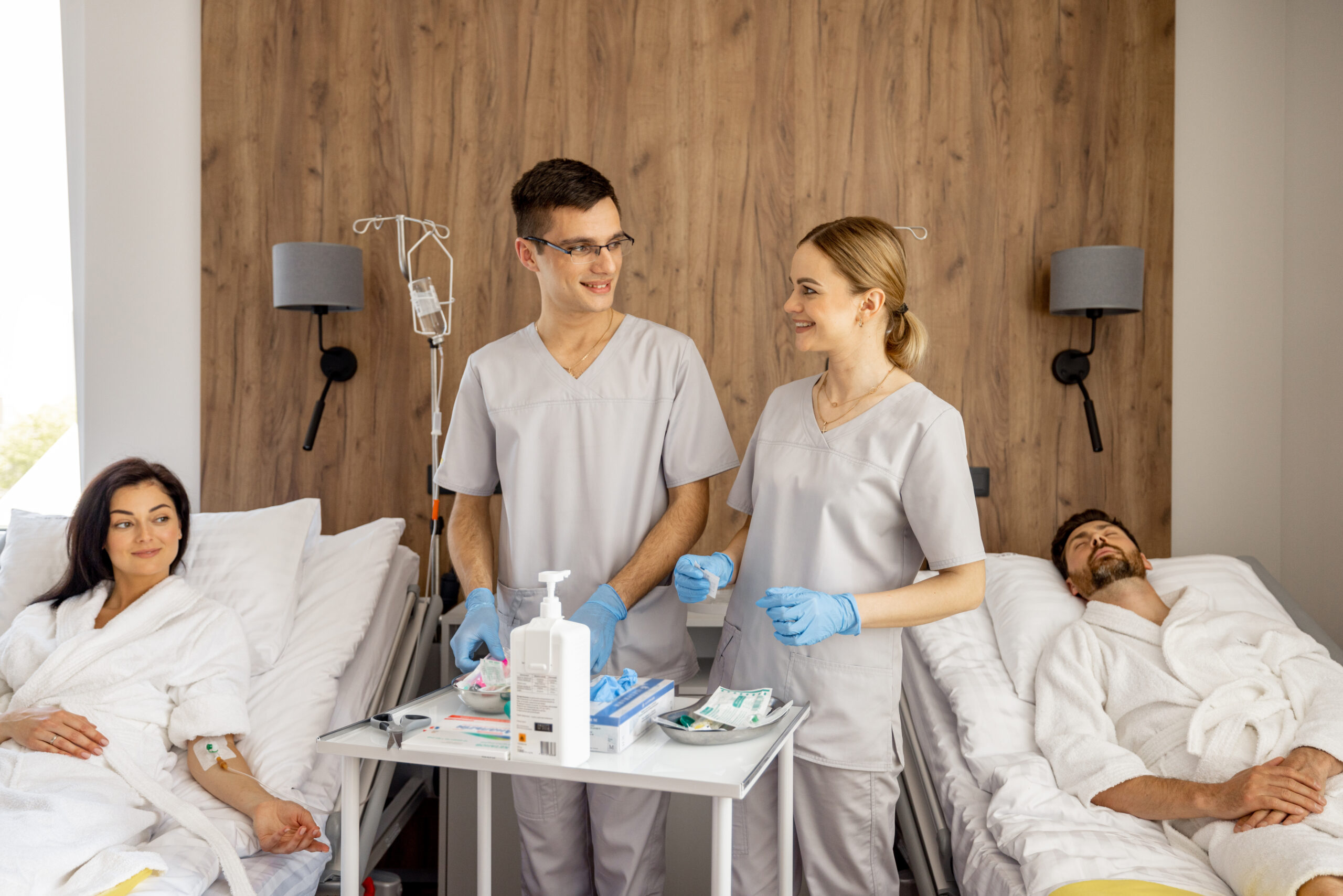
Asana Recovery
We firmly believe that the internet should be available and accessible to anyone, and are committed to providing a website that is accessible to the widest possible audience, regardless of circumstance and ability.
To fulfill this, we aim to adhere as strictly as possible to the World Wide Web Consortium’s (W3C) Web Content Accessibility Guidelines 2.1 (WCAG 2.1) at the AA level. These guidelines explain how to make web content accessible to people with a wide array of disabilities. Complying with those guidelines helps us ensure that the website is accessible to all people: blind people, people with motor impairments, visual impairment, cognitive disabilities, and more.
This website utilizes various technologies that are meant to make it as accessible as possible at all times. We utilize an accessibility interface that allows persons with specific disabilities to adjust the website’s UI (user interface) and design it to their personal needs.
Additionally, the website utilizes an AI-based application that runs in the background and optimizes its accessibility level constantly. This application remediates the website’s HTML, adapts Its functionality and behavior for screen-readers used by the blind users, and for keyboard functions used by individuals with motor impairments.
If you’ve found a malfunction or have ideas for improvement, we’ll be happy to hear from you. You can reach out to the website’s operators by using the following email
Our website implements the ARIA attributes (Accessible Rich Internet Applications) technique, alongside various different behavioral changes, to ensure blind users visiting with screen-readers are able to read, comprehend, and enjoy the website’s functions. As soon as a user with a screen-reader enters your site, they immediately receive a prompt to enter the Screen-Reader Profile so they can browse and operate your site effectively. Here’s how our website covers some of the most important screen-reader requirements, alongside console screenshots of code examples:
Screen-reader optimization: we run a background process that learns the website’s components from top to bottom, to ensure ongoing compliance even when updating the website. In this process, we provide screen-readers with meaningful data using the ARIA set of attributes. For example, we provide accurate form labels; descriptions for actionable icons (social media icons, search icons, cart icons, etc.); validation guidance for form inputs; element roles such as buttons, menus, modal dialogues (popups), and others. Additionally, the background process scans all the website’s images and provides an accurate and meaningful image-object-recognition-based description as an ALT (alternate text) tag for images that are not described. It will also extract texts that are embedded within the image, using an OCR (optical character recognition) technology. To turn on screen-reader adjustments at any time, users need only to press the Alt+1 keyboard combination. Screen-reader users also get automatic announcements to turn the Screen-reader mode on as soon as they enter the website.
These adjustments are compatible with all popular screen readers, including JAWS and NVDA.
Keyboard navigation optimization: The background process also adjusts the website’s HTML, and adds various behaviors using JavaScript code to make the website operable by the keyboard. This includes the ability to navigate the website using the Tab and Shift+Tab keys, operate dropdowns with the arrow keys, close them with Esc, trigger buttons and links using the Enter key, navigate between radio and checkbox elements using the arrow keys, and fill them in with the Spacebar or Enter key.Additionally, keyboard users will find quick-navigation and content-skip menus, available at any time by clicking Alt+1, or as the first elements of the site while navigating with the keyboard. The background process also handles triggered popups by moving the keyboard focus towards them as soon as they appear, and not allow the focus drift outside it.
Users can also use shortcuts such as “M” (menus), “H” (headings), “F” (forms), “B” (buttons), and “G” (graphics) to jump to specific elements.
We aim to support the widest array of browsers and assistive technologies as possible, so our users can choose the best fitting tools for them, with as few limitations as possible. Therefore, we have worked very hard to be able to support all major systems that comprise over 95% of the user market share including Google Chrome, Mozilla Firefox, Apple Safari, Opera and Microsoft Edge, JAWS and NVDA (screen readers).
Despite our very best efforts to allow anybody to adjust the website to their needs. There may still be pages or sections that are not fully accessible, are in the process of becoming accessible, or are lacking an adequate technological solution to make them accessible. Still, we are continually improving our accessibility, adding, updating and improving its options and features, and developing and adopting new technologies. All this is meant to reach the optimal level of accessibility, following technological advancements. For any assistance, please reach out to